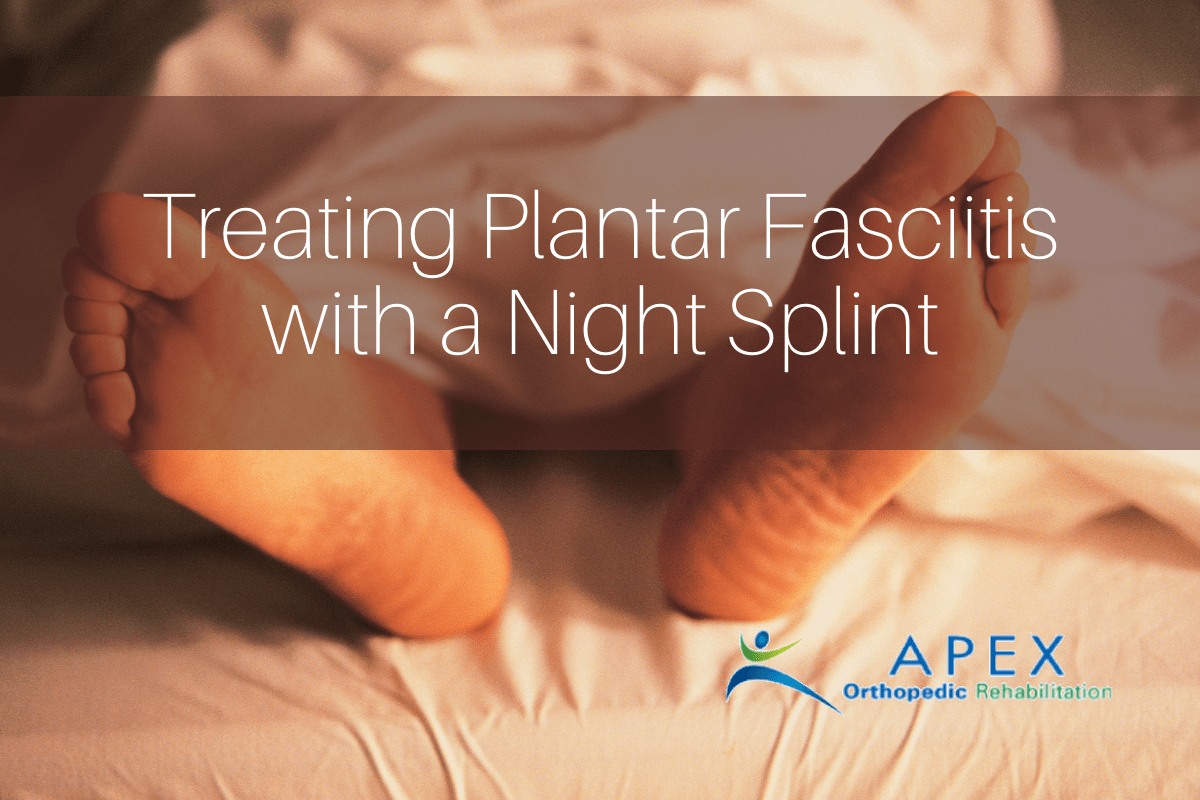
The plantar fascia is a ligament full of fibers that runs along the bottom of the foot from the heel to the toes.
When the tears are located at the end of the ligament attached to the calcaneous, or heel bone, what you feel is plantar fasciitis or heel pain—a burning, aching or sticking sensation.
As you sleep, your foot naturally and normally flexes downward, and the plantar fascia contracts. If you suffer from plantar fasciitis, the initial stretching of the ligament when you arise from bed and put your foot on the floor will be particularly painful.
Wearing a night splint (or more precisely, a dorsiflexion night splint) keeps your toes flexed a bit upward so the plantar fascia does not have the opportunity to contract. Thus, in the morning, you reduce the difference between the ligament’s position while you were sleeping and the ligament’s position when you place your foot on the floor. This should alleviate a good deal of pain.
Conservative methods of treating plantar fasciitis include other modalities besides a night splint. The simplest include:
- rest
- ice packs on your heel for 10 minutes a few times daily
- calf-muscle stretches- wear footwear when doing stretches
You should also avoid walking barefoot, which strains the plantar fascia. Your doctor may recommend taking a pain reliever like ibuprofen or another nonsteroidal anti-inflammatory drug.
We can help you manage your plantar fasciitis with additional foot devices, such as custom orthotics and pads, as well as a program of physical therapy exercises. In tandem, this regimen can help you avoid foot pain first thing in the morning.
Personalized Physical Therapy Services in Wyckoff and Ridgewood NJVoted the Most Attentive Orthopedic Physical Therapists in Bergen County
Results-Oriented Back Pain, Neck Pain, Knee Pain Treatment and Solutions
Affordable and Personalized Physical Therapy Clinic serving Wyckoff and Ridgewood NJ


